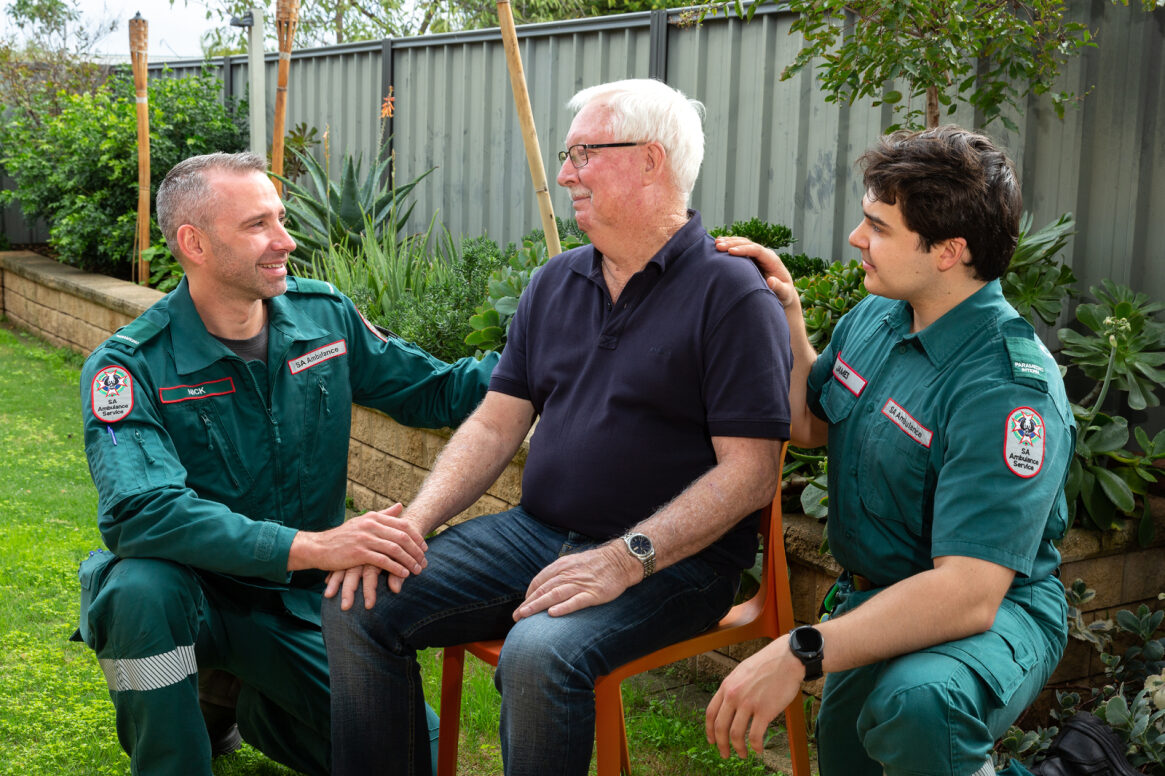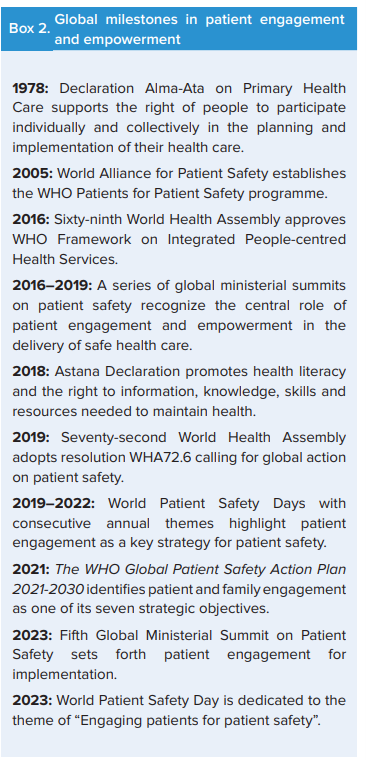
By Stephanie Nixon, QAS Advanced Care Paramedic
Charleville, Bidjara Country
'Feedback from patients can assist paramedics and ambulance services in their attempts to both improve the patient experience and patient outcomes.'
“A lived experience is not only something that is experienced, its being experienced makes a special impression that gives it lasting importance” (Gadamer, 2004). Paramedics concentrate on mastering our famous bread-and-butter skills - cannulation, advanced airways, CPR. We remember countless protocols, medications, and drug doses. However, at the end of the day, everything we do, every skill we obtain is done in the name of improving our patient care. Despite this, there is relatively little formal research on patient care from the point of view of our patients. In this article, we will delve into three recent journal articles on the topic of “patient experience”. So what do patients have to say and why should we listen?
In 2023, the World Health Organization (WHO) chose “Elevate the voice of patients” as their World Patient Safety Day slogan (WHO, 2023). The advocacy for patient engagement can be linked back to 1978 when it was first recognised that patients should have a voice in the planning and implementation of their healthcare. Patient engagement is crucial for improved health outcomes, improved quality of life, a reduction in adverse events, and it has been shown to reduce healthcare costs, positively influence patient experiences, improve patient outcomes, and improve healthcare performance (WHO, 2023). Hearing feedback directly from patients can assist paramedics and ambulance services in their attempts to both improve the patient experience and patient outcomes.

World Health Organization, 2023
The first article we will discuss is by Fergusson et al., titled “I was worried if I don’t have a broken leg they might not take it seriously”: Experiences of men accessing ambulance services for mental health and/or alcohol and other drug problems (2019). This article explores the positive and negative experiences of men in Australia who rang the ambulance due to mental health/drugs or alcohol. The three themes that emerged from the participants included professionalism and compassion, communication, and handover.
Positive experiences were noted in cases in which the paramedic was professional, caring, made the person feel valued, and allowed them to be involved in the process of their ongoing care. Conversely, negative experiences were noted when patients felt they were being judged or ignored by the paramedic, when they felt like a nuisance, or when they felt as though their condition wasn’t treated as a priority. The specific quotes taken from patients were particularly powerful, for example, “One said to me: We could be out saving someone’s life rather than transporting you for a check-up; “I heard one paramedic say: You’re too old to be doing this”. A take home from this article was that further understanding of these patient experiences are needed and increased training could be used to enhance how paramedics communicate with men experiencing mental health and/or alcohol and other drug problems.
The second article by Flannigan et al., is about women’s experiences of unplanned out-of-hospital births (2019). This is a powerful qualitative research article that dives into 22 women’s experience within Queensland. The women describe both the positive and negatives interactions they had with paramedics in the context of their out-of-hospital births. Experiences that were rated positively described paramedics as showing empathy, good interpersonal skills, and clinical competence. Quotes such as “They were really kind and listened to everything we wanted” and “He was absolutely amazing. He came in and told me what was going to happen, what he was going to do, what stage I was at” highlight these positive interactions. Experiences that were rated as negative described paramedics as disrespectful, lacking empathy or showing poor interpersonal skills.
Quotes such as “They seemed almost annoyed that it (the out-of-hospital birth) looked like it was intentional” and “They took the baby’s blood sugar and didn’t tell me” demonstrate that in some cases, the way we perform certain actions on scene may have a profound impact on our patients. This research on these women’s lived experience found that further education and professional development based on a model of care that is patient-centred, embodies respect, and is focused on developing interpersonal communication skills is needed.
The final article by King et al., discussed patients’ experiences of non-conveyance by ambulance (2023). This explored patients’ experiences of being attended and left at home after they called an ambulance. Patients described having to call an ambulance as a scary and uncertain situation. While most patients involved in the study were found to have had a positive experience, with many expressing they were made to feel reassured about their situation, there were some who described a more negative experience. These patients felt they were not taken seriously, or that the advice they were given was not correct.
Positive remarks included “I found them very, very, thorough, very, very, professional, very, very, caring and just so well-mannered” and “You can call us, and you don’t feel bad about calling if you have to”. Negative remarks included “I’m not saying I wasn’t completely taken seriously, but I called the ambulance because I thought I really needed to go to hospital and have this tested because I thought it might be something seriously wrong here. But then they said, we don’t think you need to go to hospital”.
This article explored how our patient’s expectations and beliefs about their healthcare journey might be changed by different interactions with the ambulance service. As with the other articles discussed, it highlights the importance of understanding that each of our patients is at a different point in their healthcare journey and have their own lived experiences that further colour their interactions with the health system.
Paramedicine evolving as a profession means we will need further research on how our patients experience our care. Are we inclusive, receptive, and responsive in undertaking a holistic patient approach? And if we’re falling short, how can we do better? Reflective practice and keeping up to date on recent, relevant literature can help us all become aware of patient experiences and how we can improve our practice.
Lastly, take note that in all these articles and experiences reported, very few are in relation to the legitimate clinical actions or clinical skills used for the patient. This highlights the importance of the fact that people may not remember what you do for them, but they will remember how you made them feel.
References
Ferguson, N., Savic, M., McCann, T. V., Emond, K., Sandral, E., Smith, K., Roberts, L., Bosley, E., Lubman, D. I. (2019), “I was worried if I don’t have a broken leg they might not take it seriously”: Experiences of men accessing ambulance services for mental health and/or alcohol and other drug problems. Health Expectations, 22(3), 565-574. doi.org/10.1111/hex.12886
Flanagan, B., Lord, B., Reed, R., & Crimmins, G. (2019), Women’s experience of unplanned out-of-hospital birth in paramedic care. BMC Emergency Medicine, 19(1), 54. doi.org/10.1186/s12873-019-0267-9
Gadamer, H. G. (2004). Truth and method. Continuum Publishing Group.
King, R., Oprescu, F. I., Lord, B., Flanagan, B., & Downer, T. (2023). Patients’ experiences of non-conveyance following an Australian ambulance service paramedic response: A constructivist grounded theory exploration. Paramedicine, 20(3), 63–78. doi.org/10.1177/27536386231163721
World Health Organization (2023), Engaging patients for patient safety: Advocacy brief. World Health Organisation, Geneva. Available from https://iris.who.int/bitstream/handle/10665/375011/9789240081987-eng.pdf?sequence=1

Get unlimited access to hundreds of ACP's top courses for your professional development.
Join Now